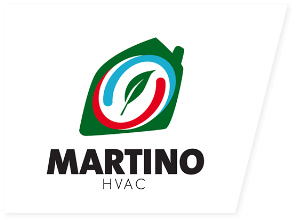Published on: July 12, 2023
HVAC System Sizing: Why it Matters and How to Determine the Right Size
Heating, ventilation, and air conditioning (HVAC) systems are essential for maintaining a comfortable indoor environment throughout the year. One crucial aspect of HVAC system installation is making sure that the system is correctly sized for the space it will be heating or cooling. Proper sizing is essential for ensuring optimal performance, energy efficiency, and comfort in your home or business.
Why HVAC System Sizing Matters
The size of your HVAC system directly affects its efficiency, effectiveness, and overall performance. If your HVAC system is too small, it will struggle to heat or cool your space adequately, leading to increased energy consumption, high utility bills, and uneven temperatures. Conversely, an oversized HVAC system may short cycle, turning on and off frequently, which can lead to wear and tear on the system and decreased efficiency.
Properly sizing your HVAC system is crucial for several reasons:
1. Energy Efficiency: A properly sized HVAC system will operate more efficiently, leading to lower energy consumption and reduced utility bills.
2. Comfort: Correctly sized HVAC systems can maintain consistent temperatures throughout your space, ensuring optimal comfort for occupants.
3. System Longevity: Ensuring that your HVAC system is the right size will help extend its lifespan by reducing wear and tear on components.
4. Air Quality: Properly sized HVAC systems can effectively filter and circulate air, improving indoor air quality.
How to Determine the Right Size HVAC System
Determining the correct size for your HVAC system involves a careful calculation based on several factors, including the size of your space, insulation levels, local climate, and more. Here are some steps to help you determine the right size HVAC system for your home or business:
1. Calculate the Square Footage: Measure the square footage of the space that needs to be heated or cooled. This will be a key factor in determining the size of the HVAC system you need.
2. Consider Insulation Levels: Homes with good insulation will require smaller HVAC systems than those with poor insulation. Consider the insulation levels in your space when determining system size.
3. Climate Considerations: The local climate plays a significant role in determining HVAC system size. Regions with extreme temperatures may require larger systems to effectively heat or cool a space.
4. Consult with a Professional: To ensure accuracy in sizing your HVAC system, it’s best to consult with a professional HVAC technician. They can perform a detailed load calculation to determine the optimal size for your space.
If you’re in the Greater Toronto Area in Ontario, Canada, consider reaching out to Martino HVAC for expert HVAC services. With over 30 years of experience, Martino HVAC has the expertise to properly size and install HVAC systems tailored to your specific needs. Serving areas such as Brampton, Milton, Vaughan, Oakville, Mississauga, Richmond Hill, Etobicoke, North York, Toronto, and Surrounding Areas, Martino HVAC is a trusted name in the HVAC industry.
In conclusion, HVAC system sizing is a critical aspect of HVAC system installation that directly impacts energy efficiency, comfort, and system longevity. By following the steps outlined above and consulting with a professional like Martino HVAC, you can ensure that your HVAC system is the right size for your needs.


